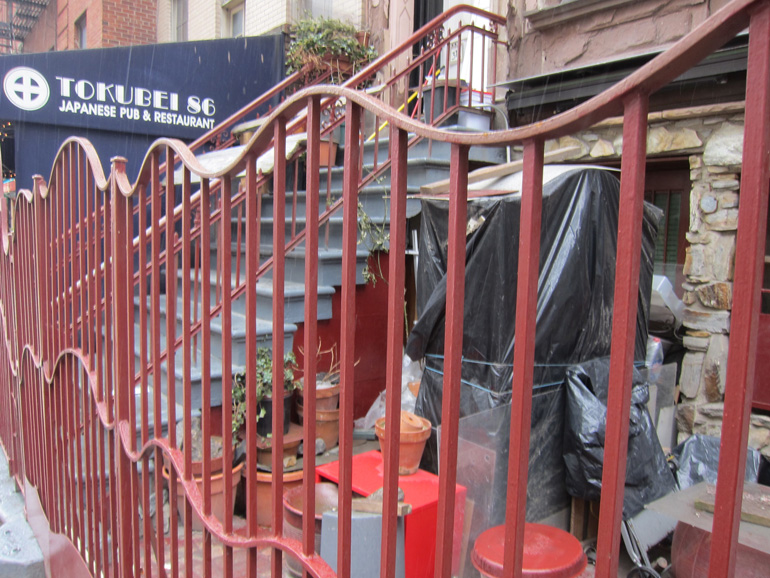Gotham Diary:
Agogula
11 March 2013
“You’ve heard of Caligula,” I said to Kathleen last night.”I am Agogula.” Don’t ask me where that came from, or why we both thought it was very funny. My state of agog came from a weekend crammed full of people whom Lady Caroline Blackwood knew. I followed Ivana Lowell’s Why Not Say What Happened? with Nancy Schoenberger’s Dangerous Muse, a biography of Ivana’s mother, published ten years earlier, in 2000. I’d argue that I read the books in the correct order, because Lowell is a topnotch writer who blazes through her material with such whipping good humor that you’re begging for more — and therefore quite grateful for passages in Schoenberger’s more careful literary biography that might otherwise drag. And somehow the earlier book whistles with the secret of which it is unaware, Ivana’s molestation, not long before she was horribly scalded by a tipped-over teakettle, by one of her mother’s louche groundsmen. Ivana did not cooperate with Schoenberger’s project, and is somewhat inappropriately listed in the index under her putative father’s name.
There’a a painting at the Museum that I love, Sargent’s The Wyndham Sisters, and I love making connections, too, so it was great fun to work out that two personalities mentioned in the same chapter of Schoenberger’s book (“The Soho Circle”) were descendants of two of the sisters. One, David Pax Tennant, opened a nightclub called The Gargoyle in 1925 (with his wife, the actress, Hermione Baddeley, sister of Upstairs, Downstairs‘s Mrs Bridges, Angela). The other was Ann Fleming, granddaughter of Lady Elcho (as she then was), the sister perched on the back of the sofa. Ann Fleming, whose third husband was the creator of James Bond, had been in a relationship with him since she was married to her first.
Connecting these dots almost compensates for the tidal sadness that tugs remorselessly throughout Blackwood’s life. It’s a curious sadness, because it’s so funny. Jonathan Raban, who as a young man rented a flat in Blackwood’s Chelsea house, wrote, “More than any optimist I’ve ever known — far more — Caroline’s pessimism made the world a happier place to be in because she could make mocking music of its terrors.” Schoenberger adds that Blackwood’s wit, “more so in her conversation than in her writing, was redemptive,” which we have to take on faith. She was rich, beautiful, clever — and troubled. She could hardly speak until she’d had a drink, and then she drank too much. She was disciplined about writing, and her daughter Ivana appears to have adored her (there is not a shred of genuine meanness in what she has to say about her mother). But one wonders if it all really had to be so messy. Caroline’s sister, Lady Perdita, runs (or ran until recently) a horse farm in Ireland with a riding school for disabled children attached; she seems to be about as happy and well-adjusted a person as you could ask for. So the ghastly Marchioness Maureen, their mother, cannot be blamed for everything.
***
By comparison, mine is a dot-less life; I don’t know anybody, or so it seems most of the time. This oughtn’t to be surprising, since I never go out, and, when I do go out, I stick to myself. I shall probably be going out even less. Kathleen and I are near to making final decisions about not renewing our Orpheus and Manhattan Theatre Club subscriptions. For several years now, I’ve been having a harder time enjoying myself in the concert hall and the theatre, or at any rate focusing on what we’re there for. My mind wanders into meta-land — the history of concerts, the styles of behavior, the electricity of the theatre. It’s all wonderful stuff, but I don’t need to go out to experience it any more; I’ve bottled it and can sample it at will. As for the great performances, I know that I’m going to miss many. And then again, I’m not. I would rather spend the time reading, writing, and re-reading.
A very great part of my reluctance to renew is my growing dislike of showing up anywhere “at the appointed time.” It’s bad enough with the doctors.

